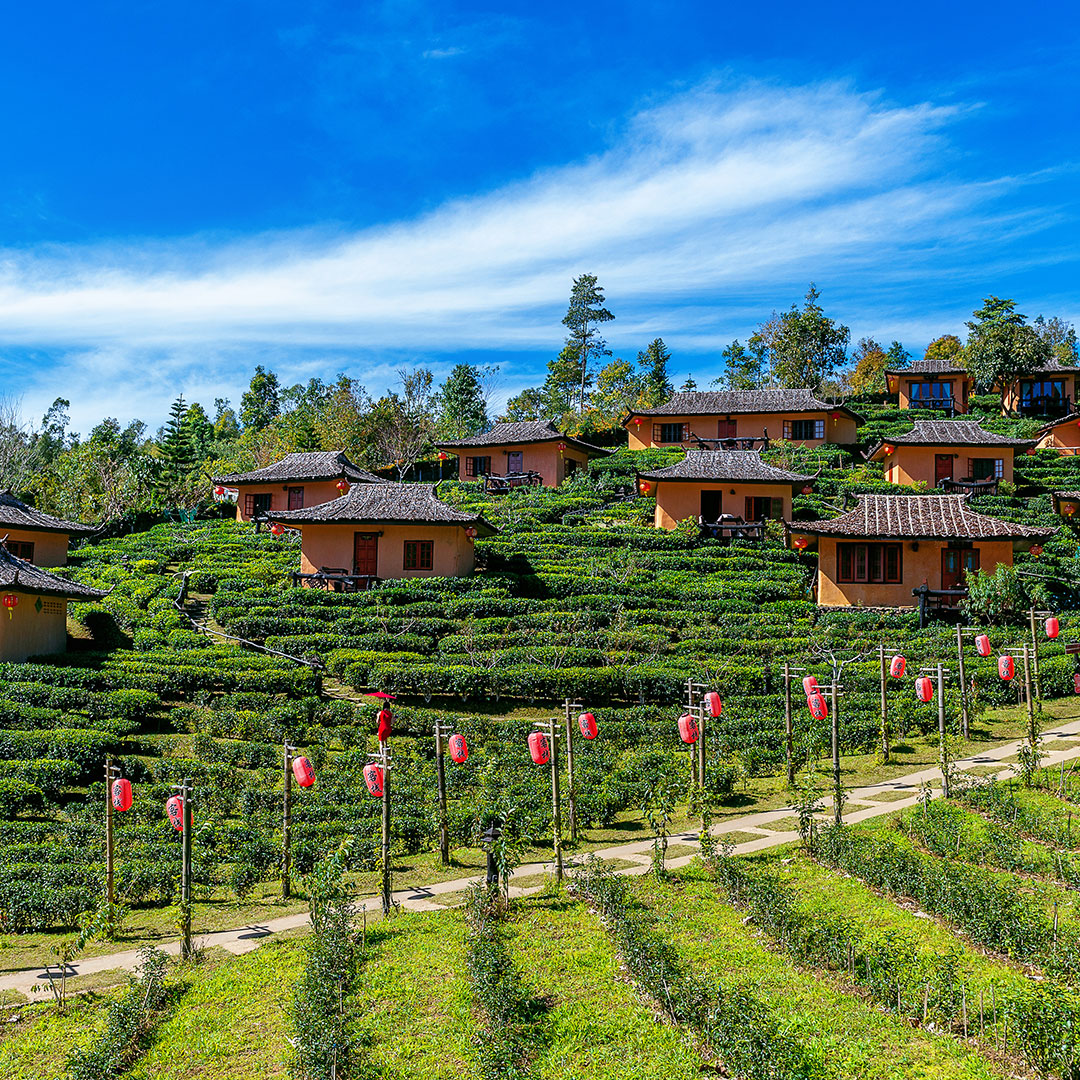Published
1 year agoon

You probably haven’t heard of Pochampally, a small village in Telangana famous for its gorgeous Ikat designs, especially on silk saris, unless you’re a textile fanatic. The community expanded its market niche in 2021, earning recognition from the United Nations World Tourism Organization (UNWTO) as “one of the top tourism villages”.
While Pochampally deservedly basks in its new-found glory, many villages in India have much to offer their visitors as well. Our villages are a treasure trove of indigenous cultures, beautiful landscapes, delectable cuisine, rich arts and crafts, and so much more—best experienced through the eyes and ears of the local communities. They make for refreshing alternatives to the urban traveler seeking authentic experiences—especially in the post-Covid world that has replaced commercial tourism with conscious, responsible, and immersive travel.
It’s the 21st century, and India is almost up to its neck with big cities, skyscrapers, never-ending roadways, and chaotic lifestyles. Now, while traveling we need to rejuvenate your soul and not glamorize our eyes. And what better way to do this to get closer to our roots, in the lap of nature in the rural countryside?
Rural Tourism- The next big thing!
‘Rural tourism’ offers an alternative to busy urban tourist destinations, allowing visitors to enjoy a healthier and more culturally enriching experience. It gives you a great deal of exposure to different cultures that breathe in the interiors of the country. It offers the taste of an earthier way of life, with simple joys and a vibrant culture that rejuvenates your spirit as you explore different villages, each with its unique characteristics. However, rural tourism is not only beneficial for tourists but also for local communities, as it provides an opportunity for economic development and community building.
The Ministry of Tourism in India has laid a great deal of emphasis on the development of many rural tourism sites which boast of rich art, culture, handloom, heritage, and crafts. These villages boast immense natural beauty and cultural splendor.
Creating economic opportunities
One of the primary ways rural tourism can benefit local communities is by providing a source of income for residents. Rural areas often suffer from a lack of economic opportunities, which can lead to poverty and unemployment. By encouraging tourism in these areas, local communities can generate revenue from tourists through accommodation, food, and other services. This can help create jobs and provide a steady income stream for residents, which in turn can lead to a better standard of living for the community as a whole.
Promote local businesses and products
Moreover, rural tourism can also help promote local businesses and products. Tourists are often interested in unique and authentic experiences that reflect the culture and history of the places they visit. Local businesses and artisans can provide these experiences by offering tours, workshops, and selling locally made products. This can help preserve local traditions and crafts, as well as support small businesses, which are the backbone of rural economies.
Preserve culture, arts, & crafts
Most of India’s native arts and traditions have been handed down through the generations as a priceless treasure. The younger generation is deterred from following the ancient cultural heritage by a lack of awareness and venues to present them. But if made available to the new generation of thoughtful travelers who see their value, these might receive a much-needed boost. The list is extensive, but some examples include Arunachal Pradesh’s bamboo and cane crafts, Madhubani in Bihar, Warli in Maharashtra, Pattachitra in Odisha, and Dokra in West Bengal.
Foster community building and cultural exchanges
In addition, rural tourism can also foster community building and cultural exchange. When tourists visit rural areas, they have the opportunity to interact with locals and learn about their way of life. This can lead to cultural exchange and mutual understanding, which can be a powerful tool for promoting peace and tolerance in a world that is becoming increasingly divided. Moreover, tourists can also participate in community events and activities, which can help create a sense of community and belonging for both locals and visitors.
Support infrastructure
In 2021, the Ministry of Tourism created a National Strategy and Roadmap for the Development of Rural Tourism in India after seeing its potential. This plan calls for improving the physical, social, and digital infrastructure in our villages. The benefits of development will thereby reach grassroots communities that would not otherwise be high on the administration’s radar by creating an eco-system that is supportive of a destination’s growth.
In conclusion, rural tourism has the potential to become a valuable opportunity for local communities, providing economic, social, and cultural benefits. However, in order for it to be sustainable and beneficial for all parties involved, it must be developed in a responsible and sustainable manner.
By doing so, rural tourism can help support and strengthen rural communities, while also providing a unique and rewarding experience for tourists. This will also contribute to reducing regional inequalities and fighting against rural depopulation. So go forth and explore India’s rural wonderland, because travel has a new face altogether that lies in our villages.


Paris 2024 Olympics: 5 of the most stylish uniforms on show


FM showers special love on Bihar and Andhra Pradesh in Budget 2024, as Opposition leaders cry “Kursi Bachao”


DreameIndia Appoints Manu Sharma as Managing Director to lead its India Operations and Market Expansion


Amazon eyes Swiggy Instamart to boost Quick Commerce in India


Economic Survey urges creation of 78.51 Lakh non-farm jobs annually


Explained: The significance of Savan in India

